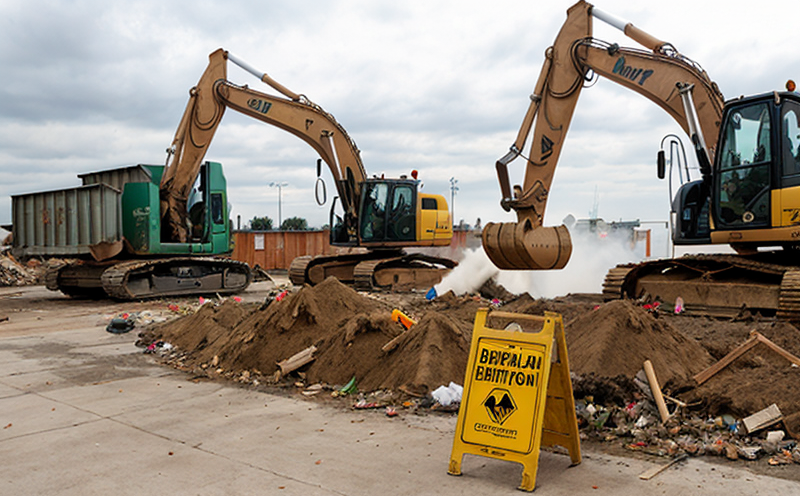ASTM D8305 Asphalt Waste Composition Analysis
The ASTM D8305 standard specifies the procedures for determining the composition of asphalt waste materials. This service is particularly valuable in sectors such as construction and demolition, where waste management and recycling are critical components of sustainable practices. The test method allows for accurate quantification of various constituents within the asphalt waste, which can inform decisions regarding reuse or disposal.
Asphalt waste composition analysis plays a crucial role in optimizing resource recovery and reducing environmental impact. By understanding the precise makeup of the waste, stakeholders can make informed choices about recycling processes, thereby minimizing the need for virgin materials. This service is essential for compliance with regulatory standards aimed at promoting sustainable construction practices.
During the testing process, samples are prepared according to ASTM D8305 guidelines, which include cleaning and drying the asphalt waste before analysis. The composition of the waste is then determined using advanced analytical techniques such as gas chromatography-mass spectrometry (GC-MS) or Fourier transform infrared spectroscopy (FTIR). These methods provide detailed information on the petroleum fractions, mineral content, and other components present in the waste.
The results from this analysis are used to categorize the asphalt waste into different grades based on its composition. This classification is important for identifying suitable recycling applications or disposal options. For instance, certain types of waste may be more suited for use as a road base material than others due to their specific chemical and physical properties.
Compliance with ASTM D8305 ensures that the testing process adheres to internationally recognized standards, providing confidence in the accuracy and reliability of the results. This is particularly important when dealing with waste materials from construction and demolition projects, where the integrity of recycled products can significantly impact overall sustainability efforts.
The service provided by our laboratory goes beyond mere analysis; it also includes detailed reporting that explains the significance of each component identified in the waste sample. This information helps clients understand how their specific waste stream fits into broader recycling initiatives and informs strategic decisions regarding future projects. Our team works closely with quality managers, compliance officers, R&D engineers, and procurement teams to ensure they have all the necessary insights to drive effective change.
- Identifies petroleum fractions that can be reused in new asphalt mixtures
- Assesses mineral content for potential use as aggregate in construction projects
- Evaluates organic compounds present, which may indicate contaminations or useful additives
Why It Matters
The analysis of asphalt waste composition is vital for several reasons. Firstly, it supports the circular economy by enabling more efficient use of materials. By understanding what components are present in the waste, businesses can decide whether to recycle or landfill the material, leading to reduced landfill usage and conservation of natural resources.
Secondly, compliance with regulatory requirements is crucial for maintaining good standing within the industry. Many jurisdictions have stringent rules regarding the disposal of construction and demolition waste, including asphalt materials. Testing according to ASTM D8305 ensures that these regulations are met, thereby protecting companies from potential fines or sanctions.
Thirdly, this service aids in reducing environmental impacts by promoting sustainable practices. Recycling asphalt waste reduces greenhouse gas emissions associated with manufacturing new products and conserves energy used in extraction processes for raw materials. This aligns with global trends towards greener business practices and contributes to corporate social responsibility goals.





